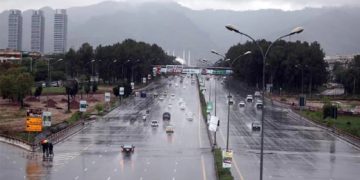The pleas challenging the Supreme Court Practice and Procedure Act have been dismissed in Pakistan’s largest court, the Supreme Court, under the leadership of Chief Justice Justice Faiz Isa.
Technically, the Supreme Court Practice and Procedure Act is a law that discusses the powers of the Chief Justice of Pakistan. It leads to the formation of a committee headed by the Chief Justice, which holds significant authority in initiating suo-motu actions and forming Supreme Court benches.
Just two days ago, Chief Justice Faiz Isa prevented senior judges of the Supreme Court, including Justice Munib Akhtar and Justice Ayesha Malik, from questioning lawyers, sparking a heated debate on social media and TV channels.
Chief Justice Faiz Isa will always be remembered for bringing the workings of the Supreme Court to the public eye by conducting live telecasts on TV channels, which people were previously unaware of how the country’s largest court operated.
The concerning issue is that while Pakistan has declared Urdu as the national language, its implementation in institutions like the Supreme Court has not been fully realized, and that’s why the proceedings of the Supreme Court are often beyond the comprehension of the general public.
During the hearing of the case, Justice Munib Akhtar raised further questions, stating that according to the 1956 Constitution, the approval of the rules was given by the President or the Governor-General, and you say that Parliament can change the rules, but why didn’t Parliament approve the Supreme Court rules before?
Attorney General Usman Anwar said that it is the Parliament’s discretion, which they were not exercising. Not exercising does not mean that the authority disappeared. Justice Ejazul Ahsan said that this law affects the judiciary’s independence. If the word “law” is used in the Constitution 200 times, should it be interpreted the same way every time?
Usman Anwar said that the law is either made by the Parliament or the judge makes it. Justice Munib Akhtar said that Article 8 states that a law cannot be made that takes away fundamental rights.
According to Chief Justice Faiz Isa, the petitioners have to prove that the Supreme Court Practice and Procedure Act is against the Constitution.




























